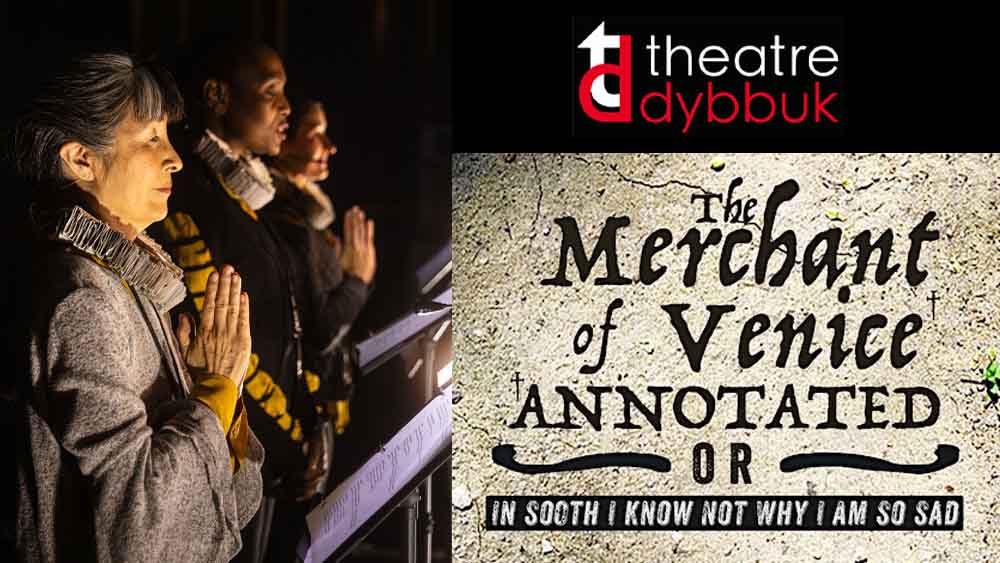
- This program has passed.
theatre dybbuk | The Merchant of Venice (Annotated), or In Sooth I Know Not Why I Am So Sad
Sep 13, 2023 @ 7:00 pm - 9:00 pm

Join The Magnes and JCC East Bay for a Performed Reading and Discussion of Selections from The Merchant of Venice (Annotated), or In Sooth I Know Not Why I Am So Sad
Wednesday, September 13, 2023 | 7:00 – 9:00 pm
In person at The Magnes Collection, 2121 Allston Way, Berkeley, CA
What can a play from sixteenth century England tell us about how antisemitism and other prejudicial beliefs operate in our world today? What perceived truths does a play reveal about the society in which it was created, and what ideas within that society does it reinforce?
William Shakespeare likely wrote The Merchant of Venice between 1596 and 1598, only a few years after plague had temporarily closed London’s theaters. This was a period of great uncertainty in English society, with ongoing conflicts taking their toll, concerns about the government’s stability under an aging leader, and significant economic stresses. The anxieties associated with these societal pressures can perhaps be seen in Merchant in its portrayal of Shylock, the Jewish moneylender.
Bringing together elements of Merchant with Elizabethan history and news from the 21st century, theatre dybbuk’s The Merchant of Venice (Annotated), or In Sooth I Know Not Why I Am So Sad takes a kaleidoscopic view of the ways in which members of a society displace their fears on the “other” during times of upheaval.
The presentation at The Magnes will include approximately 75 minutes of readings from the work performed by actors from theatre dybbuk. The performance will be followed by a discussion with the artists behind the work, during which the team will unpack the themes of the piece and share about the research and creation process.
Admission is free.
RSVP
Co-presented by The Magnes Collection of Jewish Art and Life and JCC East Bay
About theatre dybbuk
theatre dybbuk creates provocative new works that blend physical theatre with poetry and music for exciting, utterly singular live events. The company explores the rich world of Jewish history, building lyrical performances that illuminate universal human experience for contemporary audiences.
With an in-depth development process that can range from a few months to three years, Artistic Director Aaron Henne builds each piece with a cast of dedicated professional actors, designers, musicians, and scholars. The resulting works, from the dark and visceral dance theatre of cave… a dance for lilith to the shadowy and immersive hell prepared: a ritual exorcism inspired by kabbalistic principles, performed within a dominant cultural context, are challenging and beautiful to behold.


